Get Started for FREE
Sign up with Facebook Sign up with X
I don't have a Facebook or a X account

 Your new post is loading... Your new post is loading...
 Your new post is loading... Your new post is loading...

Dr. Deborah Brennan's curator insight,
April 2, 2015 9:45 AM
The academic achievement gap in poverty schools coupled with the pressure of school ranking based upon standardized tests causes many educators to focus mainly on the academic needs of students. many of our poverty students lack the Emotional Intelligence that provides an avenue for academic success. We must build an awareness of emotional intelligence and then build this in our students just as we build their cognitive intelligence 
Denver Leigh Watson, M.Ed, LDTC's curator insight,
April 2, 2015 11:26 AM
How does this fit into your leadership framework? Do your arrows flow in the same direction? Does it matter? I believe self-management is the key to the flow, impact, and goal of change for leadership. For me, this is box #1 ... where's yours? 
Philippe-Didier Gauthier's curator insight,
April 16, 2015 2:23 AM
#Reflexivité Une ressource pour penser l'autodirection de son parcours professionnel.

Gust MEES's curator insight,
April 2, 2015 1:12 PM
Even the world's most iconic CEOs didn't achieve success on their own. Learn more: - https://gustmees.wordpress.com/2014/07/10/education-collaboration-and-coaching-the-future/

Gust MEES's curator insight,
March 22, 2015 12:19 PM
What is Education 4.0? Definition of Education 4.0: Innovation-producing education. Learn more: - http://www.scoop.it/t/21st-century-learning-and-teaching/?tag=EDUcation+4.0

Gust MEES's curator insight,
March 6, 2015 10:53 AM
LEARNing To LEARN-Where To Start!? In previous posts WE were discussing about the design of LEARNing for ===> DigitalCitizenShip <===, the different possibilities. Now WE will see about the How-To on where to start, my advice by PracTICE. Let us remember what was taught on previous posts. Learn more: - https://gustmees.wordpress.com/2014/03/29/practice-learning-to-learn/ - https://gustmees.wordpress.com/2015/01/28/practice-learning-to-learn-example-2/ - https://gustmees.wordpress.com/2014/10/03/design-the-learning-of-your-learners-students-ideas/ - https://gustmees.wordpress.com/2014/07/10/education-collaboration-and-coaching-the-future/ 
Rashmi Rawat's curator insight,
March 7, 2015 1:54 AM
must read for both, my colleagues and students! 
Iolanda Bueno de Camargo Cortelazzo's curator insight,
March 14, 2015 10:34 AM
This is an interesting site, because in the last fifteen years many people talk about "learning to learn", but few know and orientate students to get it. Here we have an indication. Thanks.

Gust MEES's curator insight,
February 15, 2015 11:52 AM
I have discussed educators as model learners before: The educator's role has or should change in this age of information abundance or Education 2.0-3.0. The educator's role has always been to model nd demonstrate effective learning, but somewhere along the line, the major role of the educator became that of content and knowledge disseminator. Now that in this information age content is freely and abundantly available, it is more important than ever to assist learners in the process of how to learn. (Educator as Model Learner). Learn more: - https://gustmees.wordpress.com/2015/01/28/practice-learning-to-learn-example-2/ - https://gustmees.wordpress.com/2014/07/10/education-collaboration-and-coaching-the-future/ - http://www.scoop.it/t/21st-century-learning-and-teaching/?tag=Learning+2+Learn 
Jason Robert LeClair's curator insight,
February 17, 2015 3:32 PM
This is a great example of how teachers can lead their classes from within and put the art of learning into perspective for the students around them. We are the front lines for creating lifelong learners and the best way to do that is to show the students we are lifelong learners as well. #ufglobal

Gust MEES's curator insight,
November 18, 2014 12:50 PM
Affordable, accessible technologies can democratize opportunities for EVERYONE to become innovators and inventors. Countries can take advantage of this opportunity to create new jobs, new industry and skilled workers to achieve further economic growth and increase competitiveness. Also, preparing citizens with problem solving skills and entrepreneurial mindsets helps solve various social problems in the country. Learn more: - http://gustmees.wordpress.com/2014/08/24/coding-a-new-trend-in-education-and-a-big-responsibility/ - http://www.scoop.it/t/21st-century-learning-and-teaching/?tag=makerspace - http://www.scoop.it/t/21st-century-learning-and-teaching/?tag=Coding 
Juan Manuel De La Cruz Moreno Nápoles's curator insight,
November 19, 2014 4:07 PM
Interesante, tecnologías disruptivas. 
María Dolores Díaz Noguera's curator insight,
November 20, 2014 3:34 PM
Why teachers must embrace disruptive technologies | @scoopit via @knolinfos http://sco.lt/... |

Gust MEES's curator insight,
May 18, 2015 8:21 AM
Coaching is a difference-maker in education. Think of the mindset evident in high-performing athletic teams, chess teams, even actors and other entertainers. Content providers are valuable, but that is not what makes learning organizations distinct, especially not those that seek to reach and provide a high-quality education to a full spectrum of learners. The same thing is true as we continue to implement things like competency-based education models. Many celebrate the way CBE can reduce the cost of college degrees, increasing access and opportunity, and addressing critical workforce needs. However, if cost reduction happens at the expense of great coaching and mentoring, I am concerned that we will make little progress in the democratization of education. The “haves and have nots” of education depend largely upon the prerequisite skills needed to take advantage of newer and emerging learning environments ranging from CBE to MOOCs, self-directed learning to self-organized learning environments.... Learn more: - https://gustmees.wordpress.com/2014/07/10/education-collaboration-and-coaching-the-future/ - http://www.scoop.it/t/21st-century-learning-and-teaching/?tag=Coaching

David Witzeling's curator insight,
April 6, 2015 7:22 PM
This is a lengthy article detailing the relationship between 21st century skills and the adoption of technology as a way to promote growth in those skill areas. If you are here, you might find this very much "preaching to the choir," but the article provides a solid basis for understanding the need to integrate technology into education. 
Dr. Deborah Brennan's curator insight,
April 7, 2015 2:19 PM
The World Economic Forum has published a new white paper called New Vision for Education: Unlocking the Potential of Technology; the link for the full report is included at the end of this article. The World Economic Forum is a not-for-profit international institution headquartered in Geneva, Switzerland. Although the focus of this report is worldwide, the gaps in identified twenty-first century skills are very applicable to schools in the USA. In a powerful statement, the report says: “By the time students enter college and the labour market, deficiencies that have not been addressed earlier can be far more difficult and costly to remedy.” (p 8-9). The report differentiates 21st century skills among foundational literacies, competencies, and character qualities. It sees foundational skills as what schools and systems traditionally teach and measure: literacy, numeracy, scientific literacy, instructional-communication technology literacy, financial literacy, and cultural and civic literacy. Competencies sited include critical thinking/problem solving, creativity, communication and collaboration. While curiosity, initiative, persistence/grit, adaptability, leadership, and social and cultural awareness are included in a category called character qualities. Appendix 1 includes definitions of 21st century skills. The instructional cycle is referred to as a “closed loop” in this report. Beginning with clear learning objectives through the development of curriculum and instructional strategies to instructional delivery, ongoing assessment, interventions and the tracking of learning outcomes in a repeating complex system. The report looks at ways that technology can be embedded into each step of the instructional loop to improve student learning outcomes and eliminate the skill gap, providing some resources that might be used at different phases of the cycle. The report cites differences in the use of technology tools to close the skill gap, looking at different income levels among countries which create different contexts and stating that there are fundamental social and economic problems, such as poverty, that impede learning and underlie the skills gap. Although the deficiencies in many undeveloped countries far surpass those found in the United States, it is my perspective that there are different contexts within the United States itself that must be acknowledged and addressed. The importance of creativity, problem solving and innovation to the economic well-being of our nation and therefore, the employability of our workforce cannot be stressed enough. The pressure of standardized testing can lead to a standardized curriculum and instruction model that does not allow the classroom time for these skills to develop. Teachers caught in this dilemma are often driven to insure success on state tests at the cost of providing time for experimentation, reflection, and collaborative feedback. The report does suggest using technology for some of the foundational skills in order to free teacher time to provide instruction on competency and character skills. In two of the examples from low income countries, technology was used to provide scripted lessons that were created centrally to under-trained teachers. My preference would be to more fully train teachers or provide a mentor/coach rather than a “turn the page” curriculum model. One of the tenants of the article is the need to define and find a metric to assess each of these 21st century skills in order to compare countries skill level. Although I agree with the need to define the skills needed and provide training and resources to teachers so these skills can be embedded into the curriculum and instruction, the idea of an assessment to measure creativity or persistence fills me with dread. Paul Torrance developed a well-used test for creativity used to screen students for school gifted and talented programs. It is not a test that can be administered and interpreted without training. The idea of administering a standardized test which by definition is convergent in thinking to measure a thinking skill that is divergent by definition seems inappropriate and a major shortcoming of this report.

Dr. Deborah Brennan's curator insight,
April 2, 2015 9:45 AM
The academic achievement gap in poverty schools coupled with the pressure of school ranking based upon standardized tests causes many educators to focus mainly on the academic needs of students. many of our poverty students lack the Emotional Intelligence that provides an avenue for academic success. We must build an awareness of emotional intelligence and then build this in our students just as we build their cognitive intelligence 
Denver Leigh Watson, M.Ed, LDTC's curator insight,
April 2, 2015 11:26 AM
How does this fit into your leadership framework? Do your arrows flow in the same direction? Does it matter? I believe self-management is the key to the flow, impact, and goal of change for leadership. For me, this is box #1 ... where's yours? 
Philippe-Didier Gauthier's curator insight,
April 16, 2015 2:23 AM
#Reflexivité Une ressource pour penser l'autodirection de son parcours professionnel.

Gust MEES's curator insight,
March 15, 2015 11:43 AM
This report summarises evidence from the OECD TALIS and PISA surveys that underpins the three themes of the 2015 International Summit on the Teaching.

Gust MEES's curator insight,
February 22, 2015 2:34 PM
Innovation shouldn’t look like a tablet or a laptop. It should look like a learning environment where students — with teachers at their side — choose their learning targets and aim to hit them. Learn more: - https://gustmees.wordpress.com/2014/07/10/education-collaboration-and-coaching-the-future/ - https://gustmees.wordpress.com/2015/01/28/practice-learning-to-learn-example-2/

Gust MEES's curator insight,
November 26, 2014 11:57 AM
Le concept Hack4Kids a été lancé par SMILE g.i.e. en collaboration avec le CodeClub et l’appui de CIRCL, le CERT national, ainsi que le ministère de l’Économie. La mission est de promouvoir la programmation de manière ludique et de sensibiliser les enfants par rapport aux technologies de l'information, afin d'améliorer leur compréhension et leurs connaissances générales. Les enfants sont encadrés par des experts de la programmation et de l’informatique et les sessions se déroulent dans 3 langues : luxembourgeois, français et allemand. L’anglais peut également être utilisé, si nécessaire. Learn more: - http://gustmees.wordpress.com/2014/08/24/coding-a-new-trend-in-education-and-a-big-responsibility/

Michael Millard's curator insight,
November 2, 2014 1:20 PM
Något för mig. IKT för äldre är inte helt lätt. 
Tony Guzman's curator insight,
November 7, 2014 4:36 PM
Some excellent tips on being a good digital citizen. How many of these have you implemented already? |



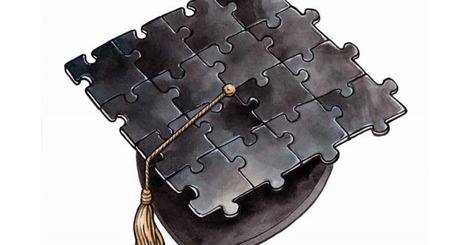





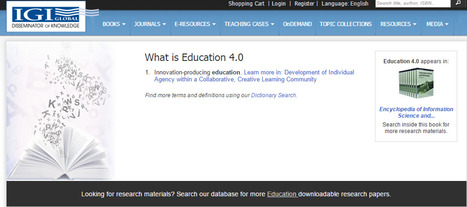
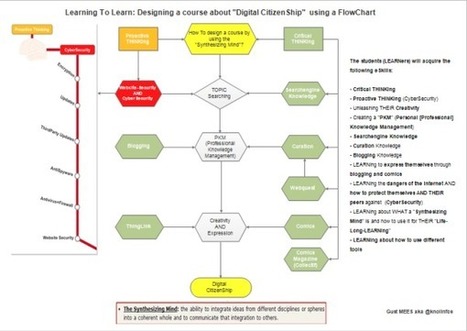
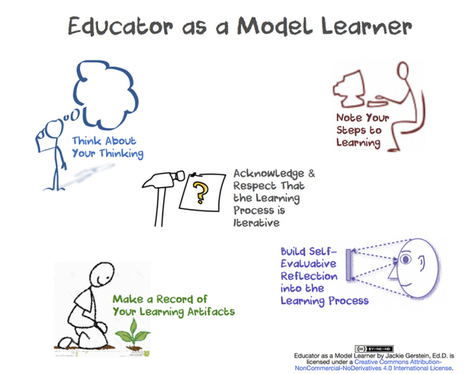
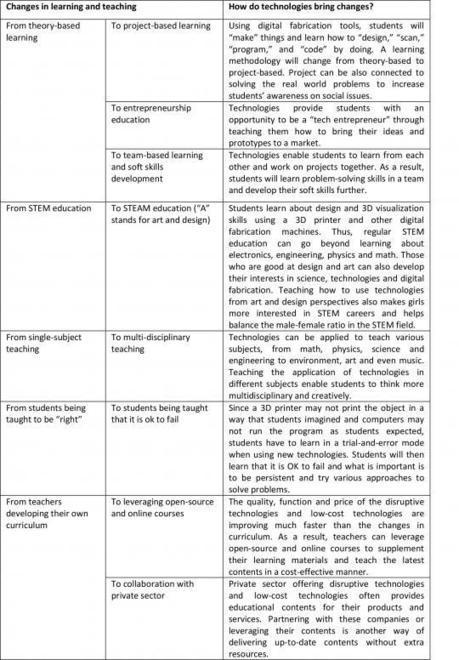
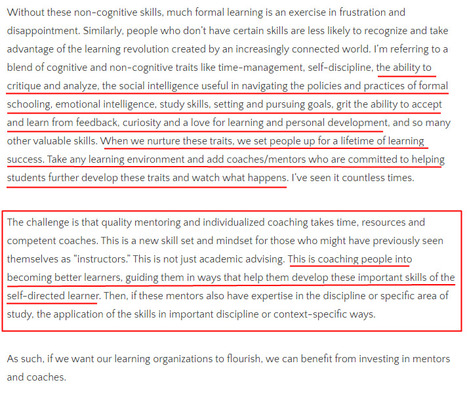

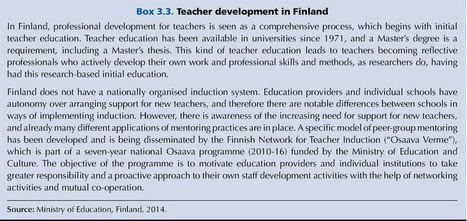

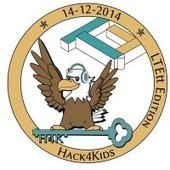
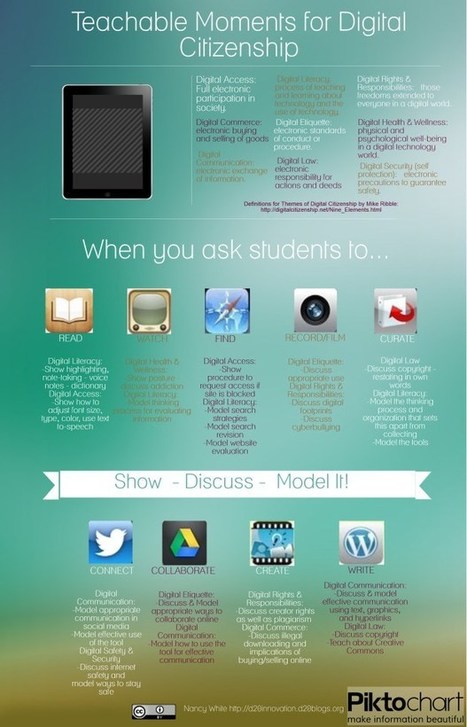





Learn more:
- https://gustmees.wordpress.com/2015/05/26/what-are-the-skills-needed-from-students-in-the-future/